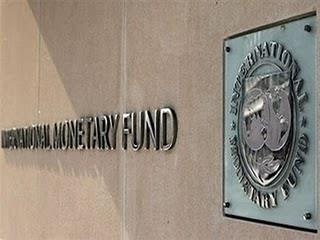by
DIRK SOLTE*
China and Russia, e.g., are requesting the IMF to emit such alternative “global currency bonds”, denominated in the IMF´s accounting unit SDR-“Special Drawing Right”.
Dominique Strauss-Kahn currently supports this idea, suggesting that the IMF accounting unit SDR – Special Drawing Right – could become a global currency. As a result all participating countries of the IMF together could be the liable counterparty of such bonds – like it has now been implemented in the ESFS – The European Financial Stability Facility. Each country would guarantee for all others! Is this fair and intended?
The approach could have a positive impact on the stability of the monetary system. However, a “fair” implementation depends on an important detail. Will the IMF – in the event of a monetary turmoil caused by liquidity bottlenecks – be allowed to act as a lender of last resort, like central banks are with respect to their national currencies? Important aspects to be considered in that case are:
• Who has to take the risk of defaults for IMF granted credits?
• Which collateral could or should be eligible when taking out a loan?
• Will there be minimum reserve requirements for global currency holdings in order to prevent the hoarding of legal tender?
The IMF as a global lender of last resort could be an appropriate solution if it provides the necessary liquidity via a global “liquidity circulation fund”, which serves as a collecting point for overflowing liquidity (in particular currency reserves in form of central bank money / legal tender and short term debt obligations, e.g. treasury bills or sweep accounts), all under the supervision of the IMF. How to collect “overflowing” liquidity? IMF could emit debentures in the form of “Liquidity bonds” of that fund, denominated in SDR as a global currency. Market participants should be obliged to hold minimum reserves of such SDR liquidity bonds reflecting reciprocally a maximum permissible reserve ratio for national legal tender. This would effectively prevent liquidity hoarding and instal IMF as a global lender of last resort, leaving the existing enormous leverage risk with the market participants.
Why is such a mechanism important at all? A recognized problem in the world financial markets is the effect of self-reinforcing processes, which are resulting from the “hoarding” of liquidity (in terms of central bank money, legal tender). Institutional investors, through their custodians, and nations with balance of trade surpluses, hold immense volumes of world-wide financial assets. A liquidity preference of those market actors could dry up the global capital markets.
This problem could be tackled through a prescription of a “maximum permissible reserve ratio” (in addition to the already regulated minimum required reserve ratio) for all institutions in the world financial system that hold legal tender or have access to central banks facilities. Any “overhang liquidity” should be made available for lending to other financial institutions that are short in liquidity through a “liquidity circulation fund” as a lender of last resort.
Those institutions tending to hoard overhanging liquidity should have to invest it in specific securities of such a fund. Once a previously arranged “signal reserve” (i.e. a set amount 1% – 2% above the minimum required reserve ratio) is attained, any liquidity that goes above the reserve limit would need to be transformed into fund shares (i.e. “liquidity bonds” that are ultimately guaranteed by the composite of all financial market participants).
A global liquidity circulation fund would separate “overhanging” liquidity from banks (groups of banks) or nations (through their central banks), making it available for everybody participating in the system. The “liquidity circulation fund” would thus permit directed interventions by granting loans in the event of “unbalanced” liquidity distribution.
* Dirk Solte is Deputy Director of the Institute for Knowledge Application in Ulm, Germany, Associate Professor of Business at St. Gallen University, Switzerland, and Chief Economist of the commission on taxes and financial markets at the Bundesverbandes für Wirtschaftsförderung und Aussenwirtschaft (BWA).
** For further details we refer to Dirk Solte: “World financial system in balance. Crisis as an opportunity for sustainable future”, Terra Media, Berlin, 2009.




 By: N. Peter Kramer
By: N. Peter Kramer

